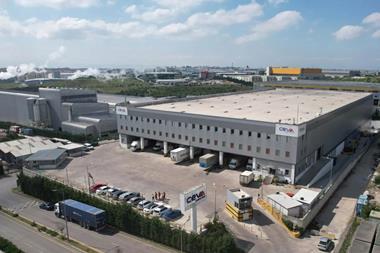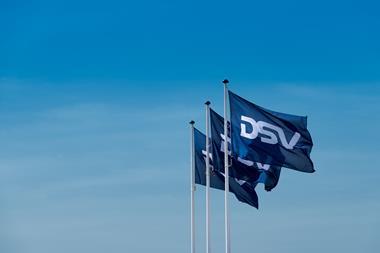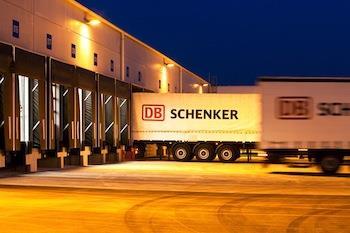DSV acquires DB Schenker, adding 160,000 staff and boosting revenue to €41.6bn amid rising demand for global logistics solutions.
Danish logistics firm DSV has formally completed its acquisition of DB Schenker for €14.3 billion ($16.3 bn).

The acquisition doubles the size of DSV and increases the combined company’s revenue to approximately €41.6 bn ($47.3 bn), with 160,000 employees across 90 countries.
DSV was announced as the front-runner of the bidding war back in September, when the firm said the sale would enhance its competitive edge and expand its market presence within the logistics industry.
Jens H. Lund, CEO of DSV, commented on the finalisation of the deal: “With this acquisition, we become a world-leading player in global transport and logistics, at a time when global supply chains are more in focus than ever before, and our customers need a reliable and agile global network of services and products.”
Read more: DB Schenker’s Greg Slawson on strategic benefits of DSV takeover
In the statement, Lund added: “By combining the two companies, we will create a unique flexible platform for long-term financial growth to the benefit of our customers, employees, shareholders and other stakeholders.”
DSV said as well as strengthening its network and competitiveness, the purchase will open up access to new markets “at a crucial time for global trade and supply chains”.
DB Schenker’s CEO Jochen Thewes added: “DSV and Schenker are a strong match with many similarities in business models and services, shared values and high operational standards, and we look forward to getting to work.”
Daniel Harrison, inhouse automotive analyst at Automotive Logistics, said the acquisition reflects the trend of industry consolidation within a relatively highly fragmented logistics sector.
“It’s very notable that DSV, and the other potential buyers that were bidding for the sale, are shipping companies, such as Maersk and MSC. Container shipping rates have collapsed due to overcapacity over the past two years, which has resulted in drastic revenue falls from the heady highs of 2021/2022,” Harrison said.
“Therefore, part of their strategy is to diversify away from shipping. Maersk for example has stated that it wants to expand its land-based logistics operations. Furthermore, many shipping companies want to develop more integrated, and end to end solutions, particularly within the automotive logistics space,” he added. “The acquisition of DB Schenker would therefore make perfect sense to complement DSV’s existing logistics services and fulfil their overall strategy.”
The deal also brings advantages to DSV’s parent company Deutsche Bahn (DB) Group, which believes the profitability of its DB Schenker arm will not continue.
Harrison added: “A further reason for divesting its logistics subsidiary DB Schenker is to reduce debt, streamline operations, and help restructure to allow DB Group to focus on its core business and implement its “Starke Schiene” (strong rail) strategy. DB Group acknowledges that their rail network has ‘suffered decades of financial neglect’. The sale of DB Schenker will therefore not only help reduce debt, but provide the capital necessary to finance the billions of continual capital expenditure required to reverse that chronic under investment.
“Furthermore, the increasing cost pressure that logistics providers are under demonstrates this acquisition was a wise strategic move. With freight rates falling, the economies of scale that a larger group allows will enhance resilience for DSV.”
Alongside today’s confirmation of the sale, DSV also reported its Q1 earnings for 2025, showcasing a positive quarter despite global trade uncertainties. The firm’s revenue was up year-on-year, from 38.3m DKK ($5.8m) to 41.7m DKK ($6.3m).









































No comments yet